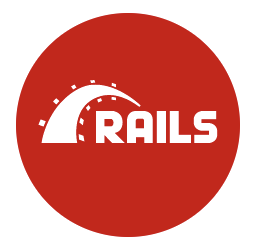 Use Solid Trifecta with one Postgresql database
Use Solid Trifecta with one Postgresql database
I love gem good_job for processing jobs in Postgresql. No need for Redis as a dependency!
However as of Rails 8 we have Solid Queue, Solid Cache, Solid Cable present by default in a new Rails app.
These tools are configured by default to work with SQLite. Not Postgresql.
Even if you generate a new Rails app via rails new myapp -d=postgresql.
myapp % rails db:create
Created database 'myapp_development'
Created database 'myapp_development_cache'
Created database 'myapp_development_queue'
Created database 'myapp_development_cable'
Created database 'myapp_test'
You most likely don’t want to pay for 4 Postgres databases in production!
1. Use Solid Queue & Solid Cache in primary (Postgres) database #
Docs: Solid Queue: Single database configuration
First, ensure Solid tools are correctly installed
bin/rails solid_cache:install
bin/rails solid_cable:install
bin/rails solid_queue:install
We don’t want separate schemas for each solid tool. Copy them as migrations to the main database
rails g migration AddSolidCable
rails g migration AddSolidCache
rails g migration AddSolidQueue
Remove solid databases from the condig file:
# config/database.yml
- cache:
- <<: *primary_production
- database: moneygun_production_cache
- migrations_paths: db/cache_migrate
- queue:
- <<: *primary_production
- database: moneygun_production_queue
- migrations_paths: db/queue_migrate
- cable:
- <<: *primary_production
- database: moneygun_production_cable
- migrations_paths: db/cable_migrate
And use the primary database for cable, cache, queue
# config/cable.yml
- writing: cable
+ writing: primary
# or
- connects_to:
- database:
- writing: primary
# config/cache.yml
- writing: cache
+ writing: primary
Configure solid_queue in development
# config/environments/development.rb
- config.active_job.queue_adapter = :inline
+ config.active_job.queue_adapter = :solid_queue
# we are not using a separate database
- config.solid_queue.connects_to = { database: { writing: :queue } }
and in production. Do not clutter the production logs with solid_queue
# config/environments/production.rb
- config.solid_queue.connects_to = { database: { writing: :queue } }
+ config.solid_queue.silence_polling = true
# optional
config.cache_store = :solid_cache_store
Run solid queue in the same process as the web app via Puma:
# config/puma.rb
- plugin :solid_queue if ENV["SOLID_QUEUE_IN_PUMA"]
+ plugin :solid_queue if ENV["SOLID_QUEUE_IN_PUMA"] || Rails.env.development?
OR run SolidQueue locally:
# Procfile.dev
+ worker: bin/rails solid_queue:start
2. Trigger a job #
rails g job HelloWorld
rails c
HelloWorldJob.set(wait: 1.week).perform_later
3. View the triggered job in Mission Control dashboard #
bundle add mission_control-jobs
# config/application.rb
config.mission_control.jobs.http_basic_auth_enabled = false
# config/routes.rb
mount MissionControl::Jobs::Engine, at: "/jobs"
Other resources:
Did you like this article? Did it save you some time?